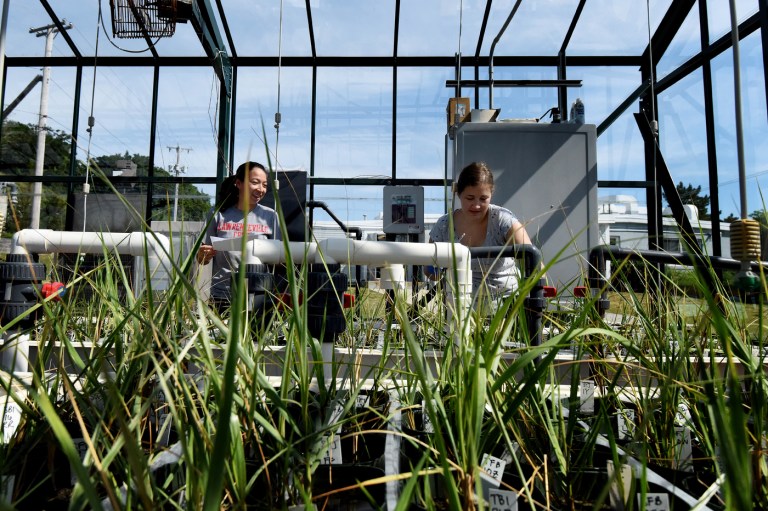Training leaders to bridge science and policy

Northeastern has introduced a new master’s program in environmental science and policy to train a new generation of professionals to effectively connect scientific study and public policy. The program is a joint effort between Northeastern’s College of Science and College of Social Sciences and Humanities.

“There is a lot of potential to gain general knowledge and also practical skills that can serve students in their future jobs,” says associate professor Jon Grabowski, who helped develop the program.
He notes that the master’s degree prepares students for various careers, including working for government agencies, for NGOs, in research positions, or in jobs focused on science communication and outreach.
Many of the program’s faculty come from interdisciplinary backgrounds; they focus on connecting key concepts to current events in environmental science and policy.
“Our teaching faculty are steeped in both disciplines,” Grabowski says. “We’ve built the program to be interdisciplinary, because we recognize that solving most environmental problems requires expertise in both of these core areas.”
Author: CSI Staff